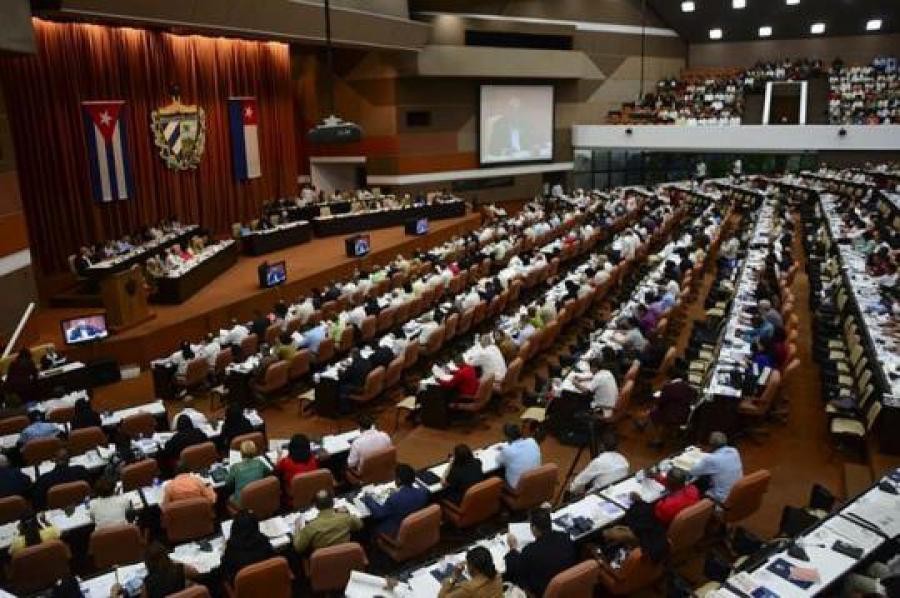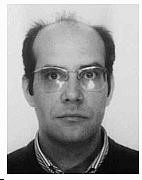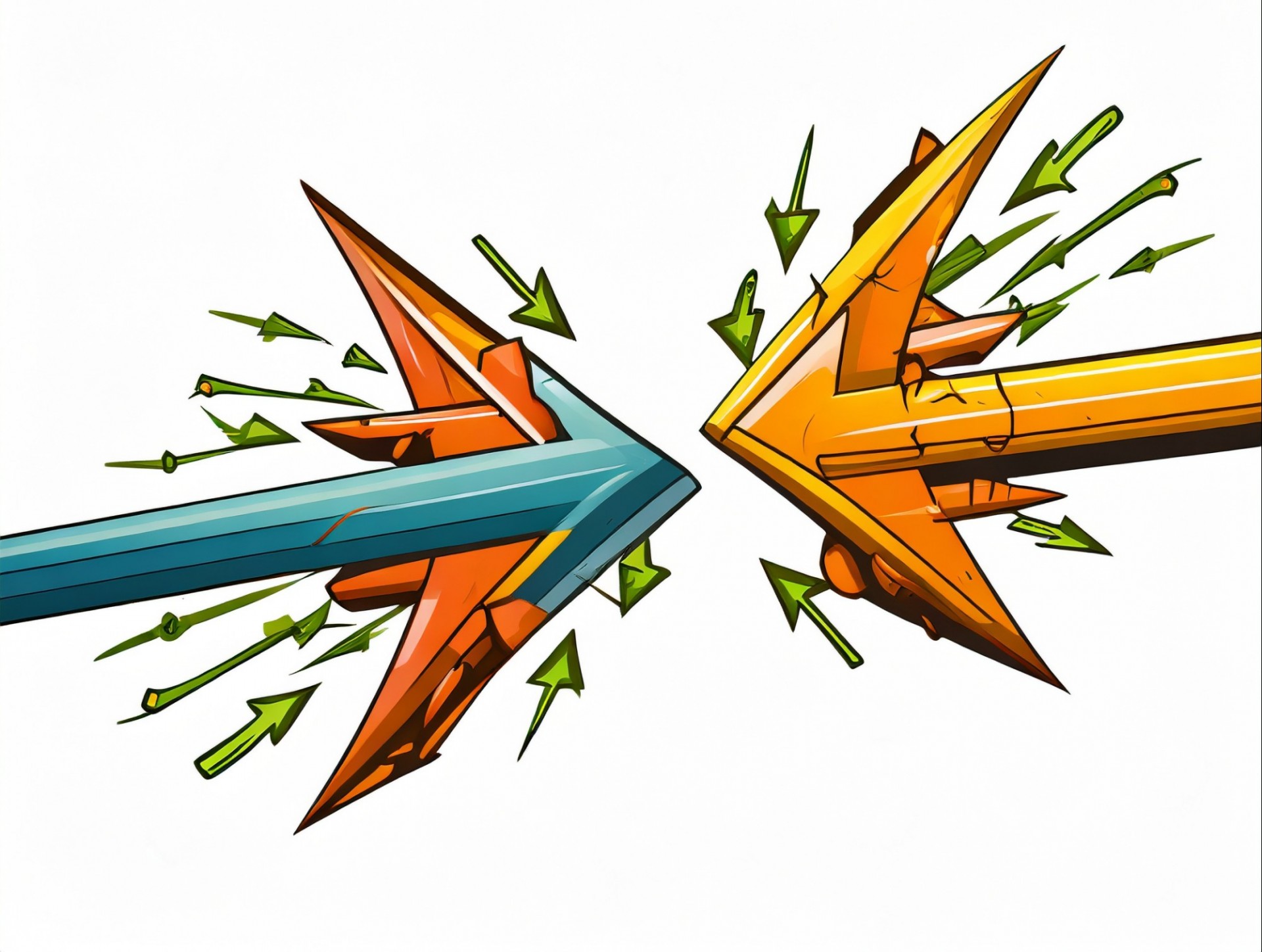The Cuban Constitution and the Structural Impossibility of Exercising its Rights
José Chofre
Professor of Constitutional Law
University of Alicante (Spain)
It is impossible for economic activity to function in Cuba without a legal system that guarantees the rights of its various participants.
The Position of the Constitution and the Principle of Unity of Power
The institutionalization of revolutionary power in Cuba began with the 1976 Constitution and was founded on the organizational and operating principles of the Soviet system, and, in particular, the 1936 Constitution. [1] That served as the political model to consecrate the Cuban revolutionary process, implementing the total supremacy of the Party/State in all economic, social and legal spheres.
The principle of “Unity of Power”, the essential core of the Cuban revolutionary constitutional tradition, which is manifested in the National Assembly of People’s Power (“ANAPP”, by its Spanish acronym) - the way power is organized in Cuba -, remains intact after the adoption of the new Constitution of 2019 (the “Cuban Constitution”). This founding document declares the socialist system adopted since the beginning of the Revolution and the Communist Party of Cuba (“PCC”, by its Spanish acronym or the “Party”) as immovable and irrevocable pillars. It further confirms the predominant role of the PCC as the leading force of society and the State, leading a socialist bureaucracy subject to its guidelines.
The PCC controls the State. The foundation of power in Cuba is found in a complex that has as its core an association between the Party/State. The PCC is installed in the State and in the society like a formidable iceberg whose most important part remains invisible.
Within that power framework, which has remained essentially unchanged since the beginning of the revolutionary process, the Cuban Constitution was approved. Despite the political context, which affects the meaning and content of its concepts, the Cuban Constitution represented an important step forward compared to previous revolutionary constitutional texts.
Nevertheless, how the Cuban Constitution fits into the legal order is greatly affected by the principle of Unity of Power, not by the Cuban Constitution’s formal assertion that it is “the supreme legal norm of the State” (art. 7 Const. 2019).
It is interesting to review the legislative history, including the parliamentary debate on the draft constitution and observe the illustrative intervention in the ANPP of Deputy José Luis Toledo, then president of its Commission on Constitutional and Legal Matters. Deputy Toledo stated with complete certainty that the PCC is above the Cuban Constitution as “the superior leading force of the society and the State.”
This expression, which in a different political context would provoke astonishment and perplexity, demonstrates that in the revolutionary conception of law within the framework of socialist constitutionalism, the Cuban Constitution is subordinated to popular power embodied in the ANAPP. It is an expression of the principle of Unity of Power [2] in the tradition that began with the 1959 Revolution.
The Cuban Constitution is essentially ideological. It is based on Marxism-Leninism (art. 5 Const. 2019). This ideology, articulated through the fundamental structure of the PCC, invariably determines the concepts of the State and the Law.
As a result, the Cuban Constitution is nothing more than a political and ideological program, not a binding legal norm. It has instrumental value in the objective of achieving the so-called communist society. It expresses an illusory and unreal image - what scholars deem to be a “semantic” constitution (K. Loewenstein).[3]
Constitution, Penal Code and Rights
The Enlightenment was conceived as the “Light of Reason” that illuminated a new world, exerting an outstanding influence on all fields of knowledge, including the law. Concepts, institutions, principles and values that we embrace today emerged at this historical moment. The concept of Rule of Law is a prominent example of that revolutionary historical change. The Enlightenment also profoundly affected criminal law, breaking from the “old regime”.
The concept of Rule of Law expressed in the Cuban Constitution (art.1 Const. 2019) had been taboo in socialist constitutionalism. Marxists attributed it to bourgeois thought, which they have historically despised. That the Cuban Constitution now prominently includes it in its first articles makes it a “wedge made of different wood” - a piece that does not fit into a structure founded on the principle of Unity of Power.
The inclusion of the Rule of Law concept in the Cuban Constitution can be considered an attempt of assimilation by socialist constitutionalism [4], denaturalizing content established over the centuries, and, at the same time, using it to reflect the will of the holder of power. [5]
Modern criminal law, as we know it, began its formation inspired by Enlightenment principles, linked to the Rule of Law, so that it exists only within the framework of a State governed by Rule of Law. In those systems in which the Rule of Law cannot exercise all of its component values, such as respect for individual legal rights, it ceases to be properly characterized criminal law. [6]
In the legal-political framework defined by the democratic constitution, in which the protection and respect of fundamental rights is fully guaranteed, the function of criminal law is very different from that in a socialist State, which is founded on the principle of the Unity of Power. Under the aegis of a democratic constitution, criminal law protects individual freedoms, although it is paradoxical that it exercises that function through punishment.
In contrast, in countries where the legal power structure is anchored in Unity of Power, as is the case of Cuba, criminal law cannot be materially recognized as law, as it does not respect the rights enumerated in its own “supreme legal norm”.
The relationships between the constitution and criminal law are intense and extensive. Since this refers to the way in which ius puniendi is exercised by the State, it is plain that the criminal law of the absolute State is not the same as that of the constitutional State. Clearly, it is not the State's ability to punish – the existence of a criminal law - that distinguishes the two types of State. Rather, it is the content of the law itself, the way in which such law is exercised, its orientation towards certain purposes and not to others, its acceptance or not of certain limits such as those widely recognized as fundamental rights and public freedoms and respect for procedures.
Constitutionalism contemplates one criminal law and no other. Its ultimate objective is to establish a political system that orders and limits its own State power.
The affirmation of freedom and rights within the framework of a constitution cannot be achieved without some criminal disempowerment of the State, allowing the creation of spaces that are not criminally prohibited and defining procedural limitations on the repressive actions of public powers.
Penal principles are enshrined in a constitution. The main conflict that emerges is with the very activity of the legislator defining crimes and misdemeanors. The transcendence and importance of the legislator's freedom to define crimes lies in the fact that criminal law creates a constraint on constitutional law; its content conditions the exercise of constitutional rights. In a constitutional system there is no limit to the exercise of fundamental rights and freedoms other than criminal law.
Investment and the Constitution: The Principle of Legal Certainty as a Structural Element of the Rule of Law
The inextricable relationship between the Party and the State in Cuba is evident in all fields of society, the economy, the culture and the law. Nothing escapes the authority emanating from that relationship. Even the Cuban Constitution explicitly recognizes that the PCC is above itself. This is the fundamental understanding in Cuba of the consideration to be given to the the Cuban Constitution and the law. [7]
As previously noted, the Cuban Constitution introduced a dissonant element to the structure of power in Cuba, such as by including the term “Rule of Law”. This concept, established since the beginning of constitutionalism, is manifested through the application of fundamentals principles such as legality, normative hierarchy, publication of rules, non-retroactivity of sanctioning provisions that disfavor or restrict individual rights, legal certainty, the duty of public powers and the prohibition of their arbitrary exercise.
The interplay of these principles is the essence of the Rule of Law. But in this interplay of interdependence there is one that stands out above the others: legal certainty, which is considered the foundational principle of the legal system, its key element. The principle, in short, condenses the others, but at the same time must be differentiated from all of them.
Legal certainty has two fundamental aspects. First, it requires that citizens be aware of the rules according to which their actions will be legally evaluated. Further, it expects citizens to have confidence in the effectiveness of the regulations so that they willingly adhere to them. As a result, legal certainty is the application of rules so as to permit natural or legal persons to foresee the legal consequences of their actions and those of others.
The operation of these principles is essential for economic development. It is impossible for economic activity to function in Cuba without a legal system that guarantees the rights of its various participants. The Rule of Law creates the necessary climate of certainty that attracts investment and allows a country to develop its economy. A country cannot achieve its development relying on the whims of spurious criteria alien to the law.
The Rule of Law is not an enigma that can take one position and then its opposite. When we invoke it, we are guaranteeing the scrupulous application of all the principles which comprise it, as described above, - without exception.
But the application and guarantee of the principles that make up the Rule of Law do not seem compatible with the principle of Unity of Power, which is the essential core of the revolutionary Cuban constitutional tradition that enshrines a role for the PCC as the leading force of the society and the State. The result is a socialist bureaucracy (that includes the courts of justice) subject to the instructions of the Party. It is not difficult, therefore, to conclude that judges and courts are also subject to the directives of the PCC bureaucracy.

Any analysis made in structuring an investment in Cuba cannot ignore the explicit logic, derived from the terms of the Cuban Constitution itself, and the implicit logic inherent to the functioning of the relationship between the PCC and the State.
Further, by virtue of the principle of Unity of Power, the “organic independence” of the courts of justice is not clearly recognized in the Constitution. On the one hand, the “functional independence” of the courts is contemplated in article 148 of the Constitution of Cuba of 2019, which supposes the absence of any type of hierarchy or subordination of the judge with respect to other authorities or organs of the State, including the judicial ones. On the other hand, the Constitution provides that it is up to the Council of State to “give general instructions to the courts through the Governing Council of the Supreme People's Court” (art. 122 of the 2019 Constitution of Cuba).
And as for the implicit logic, I refer to the foregoing discussion on the determining influence of the Party/State on all aspects of the economy, society, and the law.
Impossibility of Exercising Constitutional Rights
The Cuban Constitution based on the Unity of Power conditions and extensively limits the exercise of individual rights. Of course, all regulations restrict individual rights, but we cannot expect that the Party/State will willingly allow the full development and exercise of the individual rights enumerated in the Cuban Constitution. Consequently, we cannot keep hoping that reforms will create flexibility and increase the exercise of individual rights.
When Cuba fully and materially recognizes the exercise of the right of assembly, demonstration, freedom of expression and association, among others, as set forth in the Cuban Constitution, we will find ourselves facing another reality.
The Party/State completely encircles society and prevents the exercise of any individual right, even that of questioning. The total power lock of the Party/State cannot flex or a total crisis of the system would occur. A small crack would open in the power structure, so that even adopting a certain flexibility in allowing for the exercise of individual rights, would be irreparable.
The Party/State can only be all or nothing. Hence the rigidity of the system. All or nothing. Either all rights are fully recognized or none are recognized. No middle ground is possible.
The same analysis - on the impossibility of exercising individual rights - can be applied to show the impact of the Party/State structure on the Cuban economy. Why have the economic reforms, formulated by multiple experts over many years, not produced visible results? Why not loosen the constraints and free up the economic actors to achieve the predicted results?
Instead, Cuba adopts economic measures that are usually ineffective and inevitably lead to continuous and repeated failures. Paradoxically, failure is “expected” by the authorities, as they do not want to pay the price to achieve economic success: the recognition of a sphere of economic freedoms, fearing that by virtue of this sphere, civil society would gain rights and autonomy.
It would open an unbearable institutional crack in the system. That is why it they find it structurally necessary to have total control of the economic system, even if it leads to an almost total paralysis of the system itself. It is analogous to the structural impossibility of recognizing individual rights. The underlying logic in both cases - in the exercise of individual rights and in attempts at economic reforms - is the same.
There is no other logic in defense of the framework of the Revolution.
Notes
[1] At the most critical moment of Stalinism, the “most democratic Constitution in the world” (1936) was promulgated, which, in effect the text could have been deemed to be, but it was never applied.
[3] The philosopher and jurist Karl Loewenstein was born in Munich, state of Bavaria (Germany) on November 9, 1891. Considered the first great modern constitutionalist, he belonged to that group of persons from the legal sphere who had to emigrate to the United States in the 1930s due to the rise of Nazism and the impossibility of conducting research with the freedom that academic rigor requires. His fundamental work is Theory of the Constitution. One of his most relevant contributions was the classification of constitutions into three: normative ones, with proven effectiveness in reality; the nominal ones, which due to lack of minimum conditions are not really applied, but which have an educational value; and the semantic ones, which were completely useless, since none of their precepts were fulfilled. They are essentially a legal disguise.
[4] During the debate on the draft constitution in the ANPP, Homero Acosta, secretary of the Council of State, highlighted as a transcendent and innovative concept to incorporate the term “Socialist State of Law”, which takes from bourgeois liberal thought of the 19th century. “Capitalism wants to have exclusive use of that term, and we have reevaluated it to incorporate it.” In the European socialist experience this concept was never defined and that had consequences; it was one of the factors that undermined those States at the time.
[5] Traditionally there are two concepts of law: the voluntarist concept, Princeps Legibus solutus (Ulpian's original phrase: “the prince is not subject to the law”), in which the law is the expression of the will of the holder of power. Hobbes states in Leviathan that in the voluntarist conception of law, auctorictas non veritas facit legem, authority, the will, not the truth, makes the law. And, on the other hand, the rationalist concept, in which the law is not an act of will of the ruler but an ordering of reason aimed at the common good and convened by those who are in charge of the well-being of the community. Rationalist greatness will be translated into parliamentary deliberation, based on the individual reason of each of the deputies. In the parliamentary context, and unlike the voluntarist conception, veritas non auctorictas facit legem, that is, the truth and not the authority is what will ultimately serve to make the law.
[6] Bettiol, Giuseppe, The Penal Problem, Editorial Hammurabi, Buenos Aires, 1995.
[7] The particular conception of law that underlies Cuba is a detachment from and a lack for respect and consideration for the law itself, although this is gradually being reversed thanks to the new generations of jurists. As Hugo Azcuy stated, “the Revolution is not made with Law but with politics.” Once this reality was recognized, from then on Azcuy unequivocally claimed the normative function of Law, despite the fact that he had to face slow and painful legal procedures that were reminiscent of bourgeois institutions and forms. See. Azcuy, Hugo, “Revolution and rights”, Cuadernos de Nuestra América, vol. XII, No. 23, Havana, 1995, p. 145-155, and Chofre, José, “The Law and Constitution of Cuba before the social and economic challenges of the 21st century”, Cidob 2017 Monographs Collection.

José Chofre. Professor of Constitutional Law and European Union Law at the Faculty of Law of the University of Alicante. His relationship with Cuba began in 1995 with the Universidad de Oriente (Santiago de Cuba), the result of a collaboration agreement. From that year on, he coordinated and developed various programs in the field of Law both at the Universidad de Oriente and in Guantánamo, Granma, Camagüey, Pinar del Río and in Havana. He has participated in various research projects related to Cuba financed by the government of Spain and the European Commission. Since 2010 he has regularly organized meetings on Cuba with top national and international specialists at the University of Alicante. He has been a member of two missions to Cuba organized by the European Commission in 1997 and 1999.

